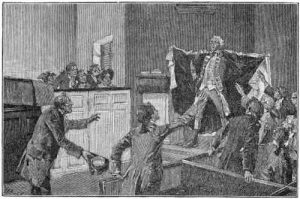
The Rising in 1776
Thomas Buchanan Read
Out of the North the wild news came,
Far flashing on its wings of flame,
Swift as the boreal light which flies
At midnight through the startled skies.
And there was tumult in the air,
The fife’s shrill note, the drum’s loud beat,
And through the land everywhere
The answering tread of hurrying feet;
While the first oath of Freedom’s gun
Came on the blast from Lexington;
And Concord, roused, no longer tame,
Forgot her old baptismal name,
Made bare her patriot arm of power,
And swelled the discord of the hour.
Within its shade of elm and oak
The church of Berkely Manor stood;
There Sunday found the rural folk,
And some esteemed of gentle blood.
In vain their feet with loitering tread
Passed ‘mid the graves where rank is naught;
All could not read the lesson taught
In that republic of the dead.
How sweet the hour of Sabbath talk,
The vale with peace and sunshine full
Where all the happy people walk,
Decked in their homespun flax and wool!
Where youth’s gay hats with blossoms bloom;
And every maid with simple art,
Wears on her breast, like her own heart,
A bud whose depths are all perfume;
While every garment’s gentle stir
Is breathing rose and lavender.
The pastor came; his snowy locks
Hallowed his brow of thought and care;
And calmly, as shepherds lead their flocks,
He led into the house of prayer.
The pastor rose; the prayer was strong;
The psalm was warrior David’s song;
The text, a few short words of might,-
“The Lord of hosts shall arm the right!”
He spoke of wrongs too long endured,
Of sacred rights to be secured;
Then from his patriot tongue of flame
The startling words for Freedom came.
The stirring sentences he spake
Compelled the heart to glow or quake,
And, rising on his theme’s broad wing,
And grasping in his nervous hand
The imaginary battle brand,
In face of death he dared to fling
Defiance to a tyrant king.
Even as he spoke, his frame, renewed
In eloquence of attitude,
Rose, as it seemed, a shoulder higher;
Then swept his kindling glance of fire
From startled pew to breathless choir;
When suddenly his mantle wide
His hands impatient flung aside,
And, Lo! he met their wondering eyes
Complete in all a warrior’s guise.
A moment there was awful pause,—
When Berkeley cried, “Cease, traitor! cease!
G-d’s temple is the house of peace!”
The other shouted, “Nay, not so,
When G-d is with our righteous cause;
His holiest places then are ours,
His temples are our forts and towers,
That frown upon the tyrant foe;
In this, the dawn of Freedom’s say,
There is a time to fight and pray!”
And now before the open door-
The warrior priest had ordered so-
The enlisting trumpet’s sudden roar
Rang through the chapel, o’er and o’er,
Its long reverberating blow
So loud and clear, it seemed the ear
Of dusty death must wake and hear.
And there the startling drum and fife
Fired the living with fiercer life;
While overhead, with wild increase,
Forgetting its ancient toll of peace,
The great bell swung as ne’er before;
It seemed as it would never cease;
And every word its ardor flung
From off its jubilant iron tongue
Was, “War! War! War!”
“Who dares?” – this was the patriot’s cry,
As striding from the desk he came,-
“Come out with me, in Freedom’s name,
For her to live, for her to die?”
A hundred hands flung up reply,
A hundred voices answered, “I!”
History of the poem as told by Professor Waitman Barbre:
“The pastor of the Lutheran Church at Woodstock, … was John Peter Gabriel Muhlenberg, who had settled there in 1772. On the Sunday following the receipt of the news of the battle of Lexington and Concord he went into his pulpit wearing the full uniform of a colonel, completely covered by his clerical gown. The sermon was a stirring one, in which he said there was a time to preach and a time to fight, and that the time to fight had come.” Asking for volunteers to join him in arms “Many of them did so and joined his regiment, the Eighth Virginia, afterward noted for its courage and good discipline. … Muhlenberg was made a brigadier-general, and major-general at the close of the war.”
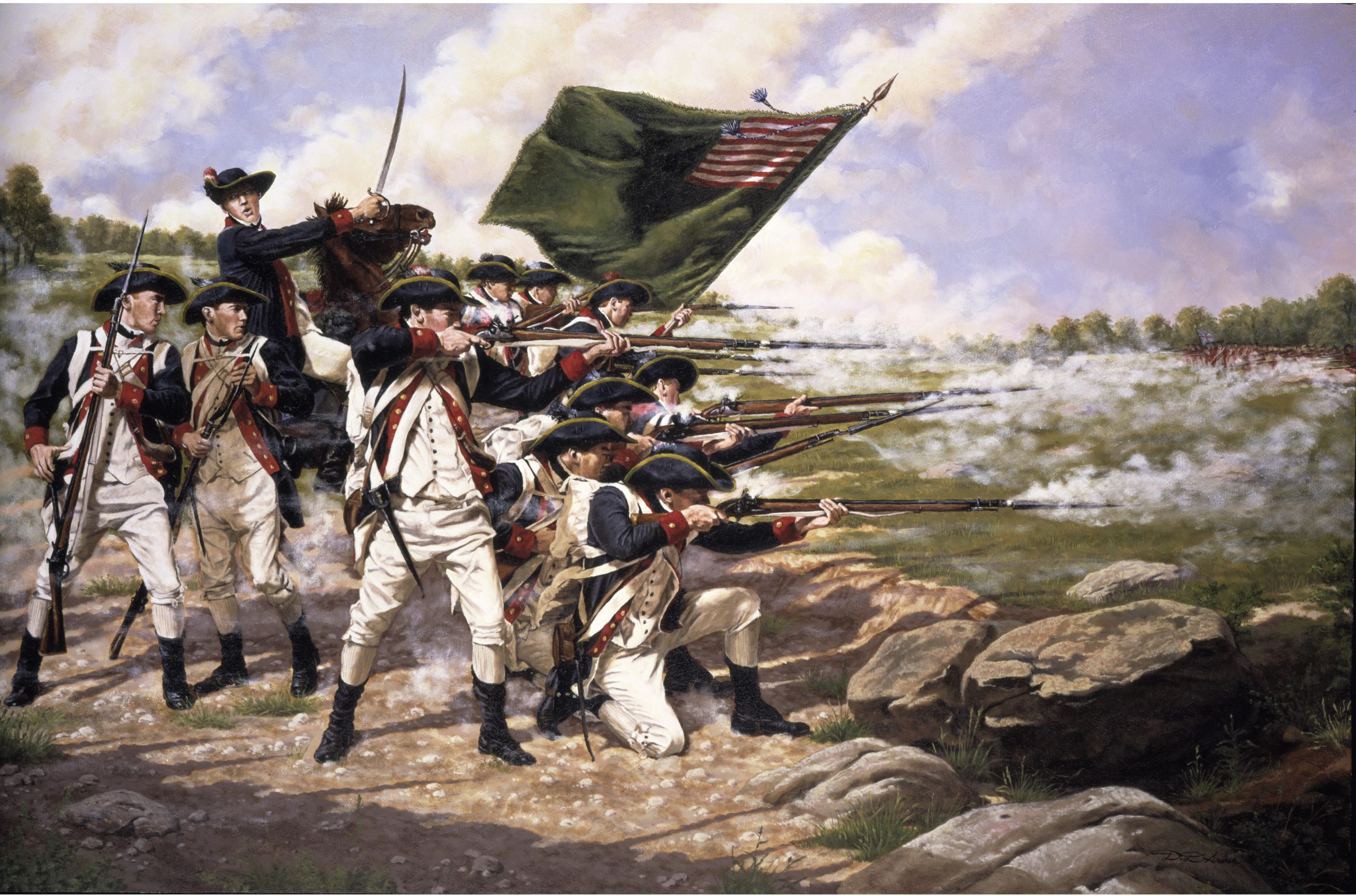


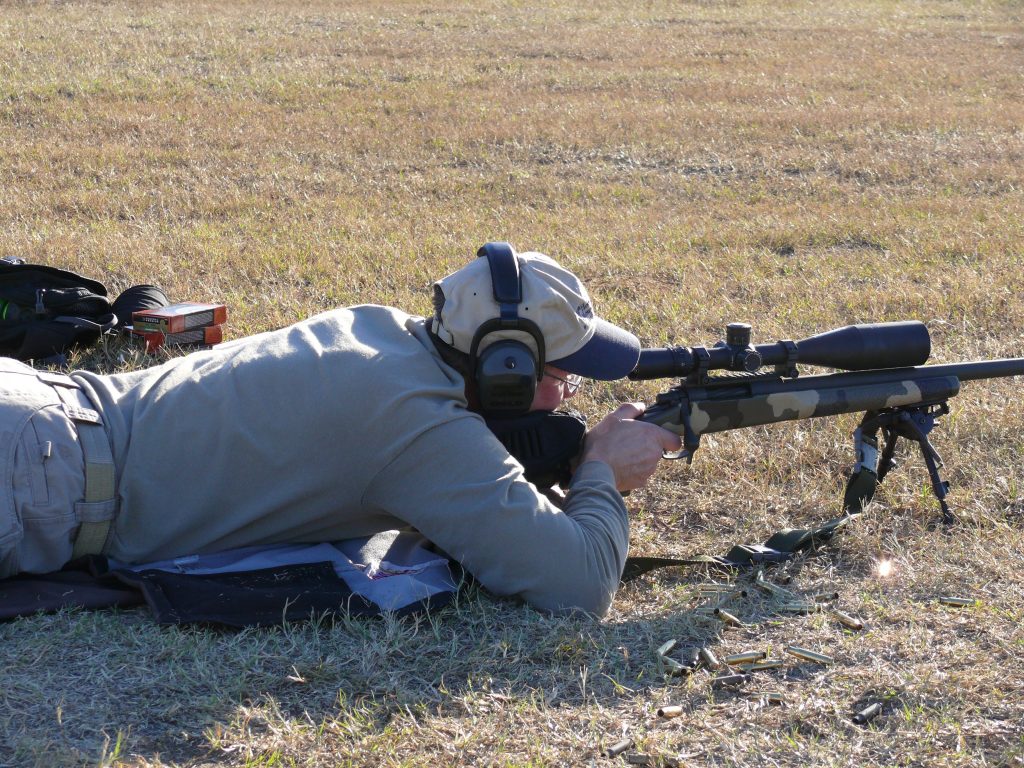
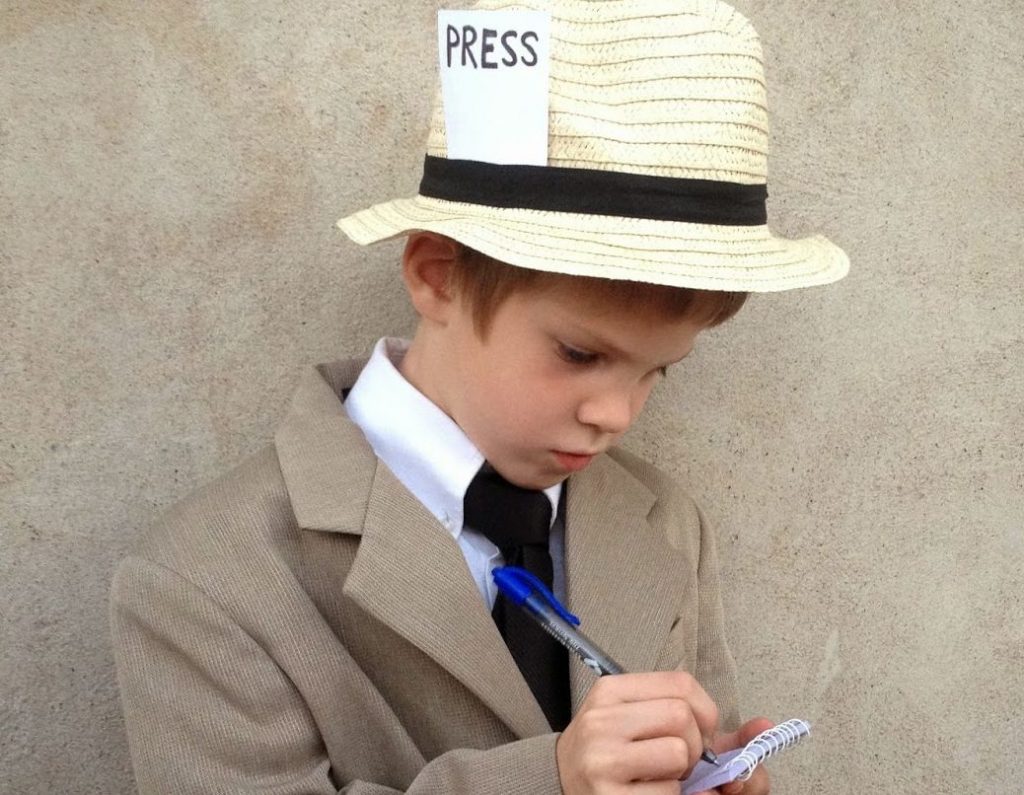

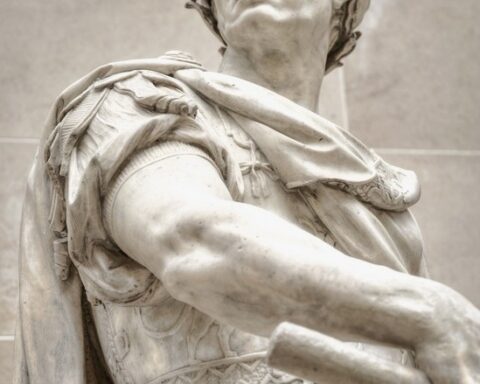

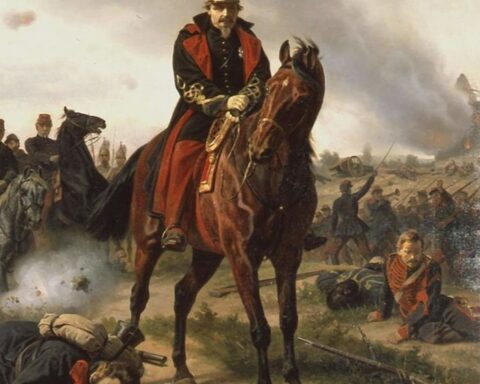
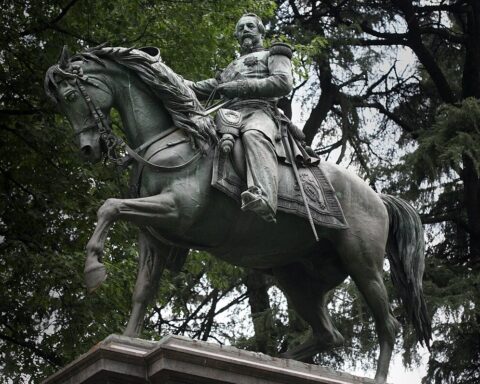
5